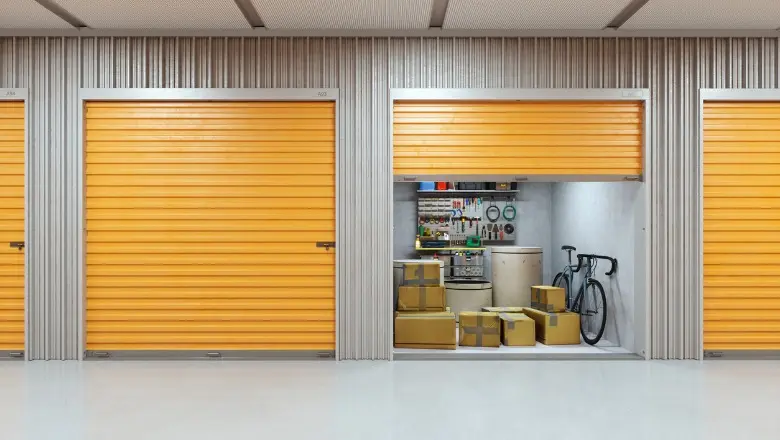Global remittances are an important resource for anyone who needs to send money internationally. Global remittances are used to send money to an individual (or group) in another country, commonly to family members abroad. Remittances may be sent in a number of different ways, such through wire transfers, money transfer apps, cash pick-up services, and more recently crypto-related services. Below, we’ll cover how global remittances work, how much they cost, and how you can safely send money around the globe.
Key Points
• Global remittances involve movement of money from one country to another.
• Remittances help migrants, travelers, and businesses engaged in global commerce.
• Transfers can be made through banks, online platforms, cash pick-up services, mobile apps.
• A global remittance can take anywhere from a few minutes to several business days.
• Typical remittance fees are around 6.4% of the total amount sent.
What Is a Global Remittance?
A global remittance is a transfer of money from one country to another. According to the Consumer Financial Protection Bureau, the U.S. government considers any electronic transfer of $15 or more from consumers in the U.S. to another country to be a global remittance.[1]
While the term “global remittance” is often used to describe money that migrants send to family members in their home countries[2], people make international money transfers for many reasons. For instance, you may need to send a global remittance to make an international purchase, support a loved one traveling aboard, fund international travel or education, or contribute to charitable organizations in other countries.
How Is a Global Remittance Different From a Wire Transfer?
An international wire transfer is a specific type of global remittance. It refers to an electronic payment that moves funds from a bank account in one country to a bank account in another country using the SWIFT network (a system that connects thousands of banks worldwide). Wire transfers are processed individually, verified in real time, and are typically irreversible once completed, which makes it a preferred transfer method for large or time-sensitive transactions.
A global remittance, by contrast, is defined as any type of international money transfer. This includes transfers made via wire transfer, an international ACH transfer (an electronic bank-to-bank transfer made using a network called the Automated Clearing House), or via cash transfer services (like Western Union) or through an online transfer platform. More recently, some groups are beginning to integrate crypto-related services as a means of sending payments across borders.
(Note that SoFi announced plans in June 2025 to introduce a global remittance service transmitting payments through blockchain networks.)
Send cash in a flash with worldwide money transfers.
Importance of Global Remittance
Global remittances are an important part of the global economy. They are used by migrant workers to send money to family and friends in their home countries, helping them afford food, shelter, health care, and education. According to the International Fund for Agricultural Development, one in eight people rely on remittances worldwide.[3] In some low-income countries, remittances make up 30% to 40% of the county’s domestic product (GDP).[2]
International payments are also crucial to global commerce by facilitating trade between countries and allowing businesses to expand their operations beyond domestic borders. Businesses in the U.S. and throughout the world use global remittances for a wide range of activities, including paying overseas suppliers for goods, compensating international employees, and receiving payments from foreign customers.
How a Global Remittance Works: Step by Step
The process for making an international money transfer varies by method and provider, but this is generally looks like this:
1. Register with a transfer service. If you’re not using your bank, select a transfer service that meets your needs and create an account. You may be required to verify your identity by providing your driver’s license, passport, or other government-issued ID.
2. Provide the recipient’s information. Enter specific details about your recipient, such as their name, bank account details, and/or the location where they will pick up the money.
3. Select the amount you’d like to send. Choose how much money you want to send and in what currency.
4. Pay for the transfer. You can typically pay by debit card, credit card, or direct transfer from your bank. The total cost typically includes the transfer amount, transfer fee, plus an exchange rate markup (an additional percentage added to the mid-market exchange rate).
5. Track the transfer. Providers typically give you an expected delivery date and time and a tracking code so you follow the status of your remittance.
Depending on the provider and payment/transfer method, the total time for this process can range from minutes to several business days.
Example of a Global Remittance
Here’s an example of a global remittance. Suppose Maria needs to send $200 to her family in Mexico:
• Maria logs into an online remittance app and chooses to send $200.
• She pays with her debit card.
• The service charges her a fee of $3.99 and converts dollars into Mexican pesos at the day’s rate and does not add a markup.
• Within a few minutes, her family in Mexico receives the equivalent of $196.01 in Pesos, available for cash pick-up at a nearby location.
Common Methods for Sending Global Remittances
There are several ways to send money internationally. Here are a few options to consider:
1. Bank wire transfers: You can use a traditional bank or financial institution to initiate an international wire transfer.
2. Online money transfer services: Digital platforms, like Wise and Xoom, facilitate online payments using your debit/credit card or bank account; the money can be sent to a recipient’s bank account or mobile wallet.
3. Cash pick-up services: If the recipient doesn’t have a bank account, services like Western Union and MoneyGram allow senders to transfer money to a physical agent location, where recipients can pick it up as cash.
4. Mobile money transfers: International payment apps, such as WorldRemit, allow individuals to store, send, and receive money via their mobile phones.
5. International money order: If an electronic transfer isn’t possible, you can purchase an international money order (a prepaid, paper-based payment) and mail it to your recipient. They are available through banks and some retailers. The recipient can cash or deposit it in their local currency.
How Much Does a Global Remittance Cost?
According to a March 2025 analysis by the World Bank, the average fee for sending global remittances is 6.5% of the remittance amount.[1] However, fees vary widely by transfer method. Here’s a closer look:
| Global average |
6.5% |
| Digital transfers |
4.9% |
| Non-digital transfers |
5% |
| Mobile operators |
5% |
| Banks |
14.6% |
How to Choose the Best Remittance Service
When researching a remittance service to send money internationally, here are key some key factors to consider:
• Fees and exchange rate: Banks and transfer services typically charge a transfer fee, which may be a percentage of the transfer amount or a flat fee. They also generally charge a markup on the exchange rate, which could be anywhere from less than 1% to 6%, or more. Be sure to consider both fees and markups when comparing services.
• Transfer speed: A traditional bank wire transfer can take three or five days, while online platforms and cash transfer services can often complete transactions within minutes or hours.
• Convenience and accessibility: Consider how your recipient will be able to receive the money. Do they have a bank account? Do they need cash in hand right away? Can they make an account on a payment app? This will help you determine the best way to send money overseas.
• Customer support: A reputable transfer service will offer various ways to contact customer service, such as phone, online chat, or email.
Best Practices for Sending Money Abroad Safely
International transfers can be risky if handled improperly, so safety is crucial.
Tips for Secure Transactions
To send money internationally safely be sure to:
• Use only licensed, regulated remittances providers (more on this below)
• Triple-check the recipient’s details.
• Verify all fees and exchange rates up front.
• Set up two-factor (2FA) authentication.
• Keep all receipts and confirmation numbers.
Common Scams to Avoid
Unfortunately, wire transfer scams are common. Here are some of the most popular schemes identified by the Federal Trade Commission (FTC) and how they work:
• Apartment and vacation rental scams: The fraudster will ask you to wire money before touring a unit.
• Fake check scams: You’re asked to deposit a bad check and wire the money before the check is found to be fraudulent.
• Family emergency scams: Someone poses as a loved one in an emergency and asks you to wire money.
• Prize scams: You’re led to believe you’ve won a prize but must first wire money for something such as taxes or shipping and handling.
• Romance scams: Someone online pretends to be romantically interested in you and eventually asks for money.
• Utility scams: A scammer poses as your utility company and threatens to shut off services if you don’t wire money ASAP.
How to Verify a Remittance Service
To find a legitimate service, make sure the provider:
• Is fully licensed and regulated in the countries where it operates. This ensures the provider meets strict financial regulations set up to ensure secure transfers. In addition, they must follow compliance standards that prevent money laundering and other illegal activities. A provider’s licensing should be detailed on its website.
• Has a trusted reputation in the industry. Read online reviews and look for consistently positive feedback about the provider’s reliability, customer service, and transparency. Be wary if you see complaints about delays, hidden fees, or poor communication.
• Offers a high level of security. Look for a service that uses multi-level authentication, such as verification codes or biometric logins (like fingerprint or face scans). These security features make it harder for unauthorized users to access your account.
• Is transparent about refund and cancellation procedures. A legitimate service will make it easy to find these terms before you confirm a transaction. Under federal law, you have at least 30 minutes to cancel the remittance transfer at no charge, unless the transfer has already been picked up or deposited into the recipient’s account.
Comparison of Leading Global Remittance Services
According to a September 2025 analysis by CNBC, these six international money transfer providers are among the top options:
| Service
|
Standout Features
|
Delivery Options
|
Drawbacks
|
| Remitly |
Can choose Economy or Express transfer; over 350,000 cash pickup locations |
Bank account deposit, debit card, mobile wallet, cash pickup |
Express transfer fees can be high |
| Wise |
No exchange rate markup |
Bank account deposit, mobile wallet |
No cash pick-up locations |
| OFX |
No transfer fees for U.S. customers; no maximum transfer limit |
Bank account deposit |
Bank transfer only; no cash pickup locations |
| Western Union |
More than 500,000 cash pickup locations globally |
Debit card, mobile wallet, bank account deposit, cash pickup |
Charges fees plus exchange rate markups |
MoneyGram |
Over 400,000 cash pickup locations globally |
Bank account deposit, debit card, mobile wallet, cash pickup |
Charges fees plus exchange rate markups |
Xoom |
Can use PayPal or cryptocurrency to fund transfers; large network of cash pickup sites |
Bank deposit, debit card, mobile wallet, cash pickup |
Charges fees plus exchange rate markups |
The Global Impact of Remittances
Remittances are a big part of the global economy. Let’s take a closer look.
Statistics on Remittance Flows
Here are some recent stats on global remittances:
• In 2024, global remittances totaled $905 billion.[2]
• Migrant workers typically send $200 to $300 every one to two months to families in their home countries.[3]
• More than one-third of remittances go to rural areas, helping to improve financial stability and food security in those regions.[3]
• Global money transfers are now the largest source of external finance for low- and middle-income countries.[5]
Economic Impact on Developing Nations
The impacts of remittances on low- to middle-income countries include:
• Reducing poverty by providing stable household income
• Boosting household consumption
• Promoting financial literacy
• Reducing a household’s reliance on credit
• Fueling local entrepreneurship
The Takeaway
Global remittances are more than routine money transfers — they are essential tools that help families stay connected, provide financial security, and keep international commerce moving. Whether you’re supporting loved ones, covering overseas expenses, or conducting business, global remittances offer a reliable way to move funds across boards safely and effectively.
SoFi Checking and Savings members can now send money to 30+ countries, including Mexico, India, Brazil, and more. Plus, make three international money transfers by 3/31/26 to earn $30 in rewards points.
SoFi worldwide money transfers are a fast, affordable, and simple way to transfer money to loved ones abroad — directly from the SoFi app.
Fast, easy international money transfers.
FAQ
What is the average cost of a global remittance?
The average cost of a global remittance is 6.5% of the amount of money being transferred, according to a 2025 analysis by the World Bank. However, cost can vary widely depending on the transfer method (bank transfers are generally more expensive than online transfer services) and where you’re sending the money.
How long does it take for a global remittance to complete?
International money transfers can take anywhere from a few minutes to several business days, depending on how you send the money. Transfers using a cash pick-up service or digital transfer platform often take only minutes or hours, while traditional bank wire transfers can take one to five business days.
Can I send a global remittance without a bank account?
Yes, it is possible to send a global remittance without a bank account. Some cash transfers services like Western Union allow you to pay for the transfer in person using cash. In addition, many online transfer platforms permit you to fund a transfer using a prepaid card or credit card with no need to link a bank account.
Are there any limits on a global remittance?
There are no federal limits on the amount of money that can be sent from the U.S. to other countries. However, remittance providers may set their own limits on how much you can send in a single transaction or per day or month. For example, transfer limits for banks typically range from $1,000 to $50,000 per transaction; while some transfer platforms limit you to $5,000 per transaction or $15,000 every 30 days.
How can I track my global remittance?
Remittance services typically provide tracking tools to monitor the status of your transfer. After sending, you’ll likely receive a confirmation number or tracking code, which you can use on the provider’s website, app, or through customer support. Some services also send emails or text updates to notify you when the funds are processed or received. Tracking helps ensure transparency and can provide peace of mind, as you’ll know where your money is and when it reaches your recipient.
What are the potential security concerns with remittance services?
While remittance services are generally safe, there are potential risks to be aware of. International money transfer scams are common, especially if you send money to someone you don’t know. Data breaches or weak cybersecurity practices could expose your personal or financial information. To reduce risks, always use licensed providers that require multi-factor authentication, confirm the recipient’s details carefully, and avoid sharing sensitive information on unsecured networks or suspicious platforms.
About the author
Timothy Moore
Timothy Moore is a personal finance writer and editor and a Certified Financial Education Instructor. His work has been featured on sites such as USA Today, Forbes, Business Insider, LendingTree, LendEDU, and Time. Read full bio.
Article Sources
Photo credit: iStock/MicroStockHub
Global remittance services are available to SoFi members through SoFi Checking and Savings. SoFi Checking and Savings is offered by SoFi Bank, N.A., Member FDIC. Transfers are subject to the terms of the SoFi Bank Deposit Account Agreement in effect at the time of payment. Fees, exchange rates, and estimated delivery times will be presented prior to payment confirmation. Service availability may vary by country or recipient.
SoFi Checking and Savings is offered through SoFi Bank, N.A. Member FDIC. The SoFi® Bank Debit Mastercard® is issued by SoFi Bank, N.A., pursuant to license by Mastercard International Incorporated and can be used everywhere Mastercard is accepted. Mastercard is a registered trademark, and the circles design is a trademark of Mastercard International Incorporated.
Annual percentage yield (APY) is variable and subject to change at any time. Rates are current as of 12/23/25. There is no minimum balance requirement. Fees may reduce earnings. Additional rates and information can be found at https://www.sofi.com/legal/banking-rate-sheet
Eligible Direct Deposit means a recurring deposit of regular income to an account holder’s SoFi Checking or Savings account, including payroll, pension, or government benefit payments (e.g., Social Security), made by the account holder’s employer, payroll or benefits provider or government agency (“Eligible Direct Deposit”) via the Automated Clearing House (“ACH”) Network every 31 calendar days.
Although we do our best to recognize all Eligible Direct Deposits, a small number of employers, payroll providers, benefits providers, or government agencies do not designate payments as direct deposit. To ensure you're earning the APY for account holders with Eligible Direct Deposit, we encourage you to check your APY Details page the day after your Eligible Direct Deposit posts to your SoFi account. If your APY is not showing as the APY for account holders with Eligible Direct Deposit, contact us at 855-456-7634 with the details of your Eligible Direct Deposit. As long as SoFi Bank can validate those details, you will start earning the APY for account holders with Eligible Direct Deposit from the date you contact SoFi for the next 31 calendar days. You will also be eligible for the APY for account holders with Eligible Direct Deposit on future Eligible Direct Deposits, as long as SoFi Bank can validate them.
Deposits that are not from an employer, payroll, or benefits provider or government agency, including but not limited to check deposits, peer-to-peer transfers (e.g., transfers from PayPal, Venmo, Wise, etc.), merchant transactions (e.g., transactions from PayPal, Stripe, Square, etc.), and bank ACH funds transfers and wire transfers from external accounts, or are non-recurring in nature (e.g., IRS tax refunds), do not constitute Eligible Direct Deposit activity. There is no minimum Eligible Direct Deposit amount required to qualify for the stated interest rate. SoFi Bank shall, in its sole discretion, assess each account holder's Eligible Direct Deposit activity to determine the applicability of rates and may request additional documentation for verification of eligibility.
See additional details at https://www.sofi.com/legal/banking-rate-sheet.
Financial Tips & Strategies: The tips provided on this website are of a general nature and do not take into account your specific objectives, financial situation, and needs. You should always consider their appropriateness given your own circumstances.
We do not charge any account, service or maintenance fees for SoFi Checking and Savings. We do charge a transaction fee to process each outgoing wire transfer. SoFi does not charge a fee for incoming wire transfers, however the sending bank may charge a fee. Our fee policy is subject to change at any time. See the SoFi Bank Fee Sheet for details at sofi.com/legal/banking-fees/.
Third-Party Brand Mentions: No brands, products, or companies mentioned are affiliated with SoFi, nor do they endorse or sponsor this article. Third-party trademarks referenced herein are property of their respective owners.
SOBNK-Q325-113
Read more





